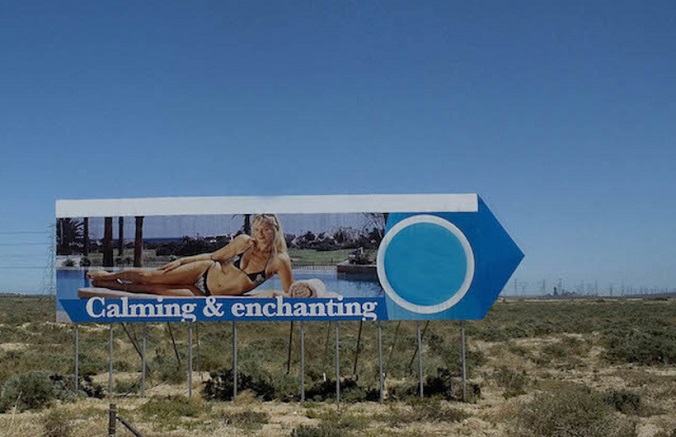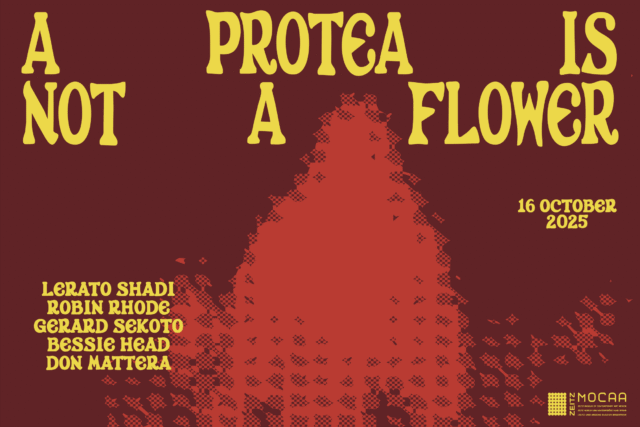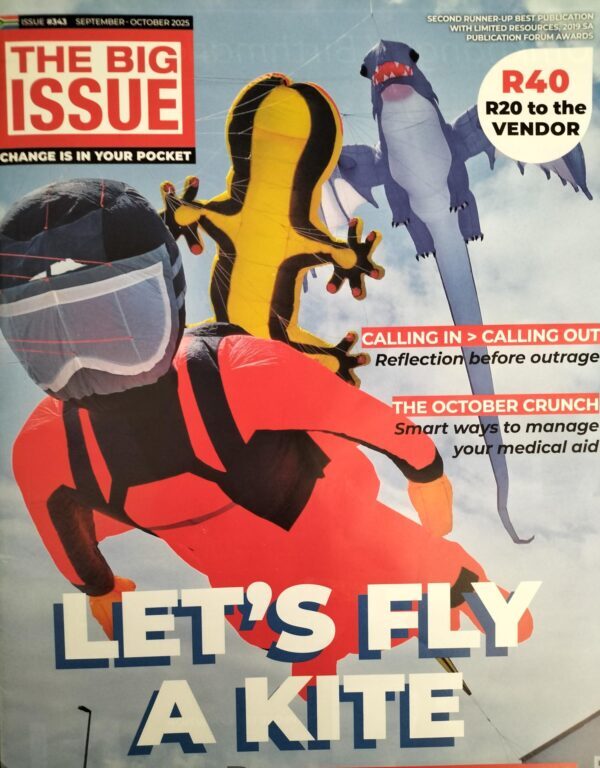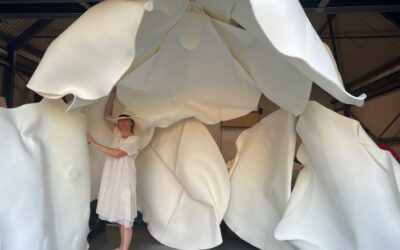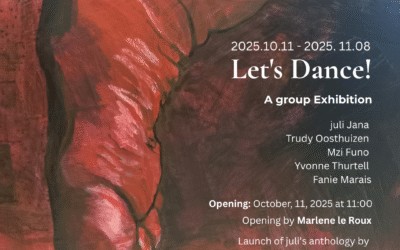Un/Settled…this is not a speech or a proclamation, it is a work of conversation and collaboration between two friends that extends outwards to the place and the people we write of, photograph, and listen to, write Rose Walton and Sydelle Willow Smith.
We grew up in the years just after apartheid ended and since primary school, we have been told we are children of the rainbow nation. Today there is mounting frustration towards the largely intact white capital that controls the majority of the country’s economy.
What is called whiteness, and the twin histories of colonialism and apartheid that produced it, takes up a lot of space, both physical and psychic. In this body of work we, writer Olivia Rose Walton and photographer Sydelle Willow Smith, seek a way to question its undercurrents without merely reproducing it. Are white people confronting their conceptions of themselves? How? What comes out of it?
Navigating this new social landscape, where old scars run deep, requires deeper conversations. It requires listening with humility.
The end of apartheid was signalled by a great gesture of forgiveness and hope, one that must have seemed at the time to transcend the war still being fought, and the decades of violent oppression, the cities, families, farms and people torn to shreds in the name of a clapped-out nationalism so narrow in its thinking, that it saw nothing beyond shades of melanin. A system unable, until the last minute, to compromise. But there was no miracle of revelation among apartheid’s upholders – only a moment of political astuteness on the part of some National Party leaders. A survival reflex. Many white South Africans seem to have taken the release of Mandela and platforms for redemption and healing like the Truth and Reconciliation Commission as absolution. This was not absolution.
In the last few years, student and workers’ protests have made this narrative – already standing on shaky ground – impossible to accept. #RhodesMustFall and #FeesMustFall have demanded answers of South African institutions, from the universities to the office of the president. But promises have not been kept. The protests also drew from and triggered debates about race and gender that had not happened on such a nationwide scale before. White people have finally been made to consider what it means to be white in this place – what it means to be born into a privilege impossible to deny.
Un/Settled began as a conversation between two friends, as the #RhodesMustFall movement toppled Rhodes’ statue at UCT, a university we both attended.
We decided to document a moment of upheaval that offered cracks in the country’s façade which should, we believe, be explored: Sydelle through photographs and interviews with white South Africans, and Olivia through writing that draws on Smith’s work and the observations of participants. We want to trace lines from where we stand now to the places where our origins lie, and back again. Lie in both senses of the word. Our origins lie like a dog lies, in a physical place, a house, the arms of a parent, a different country. Like the Jewish section of the cemetery in Harrismith, the Free State, where Sydelle’s Lithuanian Jewish ancestors are buried.
But origins also lie like people lie. They tell untruths or fabricate new things entirely, making myths among the buildings and the long-dead. I think of the stories we inherit: Myths of belonging that tell us we came here and did only good things. The history of white domination in this place is one so violent and greedy that we are required to examine our presence here. It is alluded to in the photograph Joseph Conrad Heart of Darkness, taken in the DRC – the history of white South Africans is inseparable from longer histories of exploitation, the mad heart of European expansion. To examine our origins is not a task that has been demanded of us whiteys – not until recently, anyway.
Below are some of the responses of Un/Settled participants who have been interviewed thus far:
“Until the protests at UCT I never felt like I was directly confronted with these issues,” says Adam, in Cape Town. “A friend of mine calls it the time of cutting out tongues. I think it’s definitely a time where in public now, I would very often be quiet.”
Nicci talks of a similar shift. “I thought that there was no problem in saying I’m a South African. But I see now that that is hugely problematic. The older generation of white people like my mother and her brothers and sisters, they feel like they can just leave. There’s that quote, like ‘If things get bad enough, we can just leave’. What does that even mean? What is ‘If things get bad enough?’”
Liam talks about the obsession with land in the writing of white South Africans. “I’m not saying that one can’t write about here while being white, but it requires a far deeper commitment to the space which is being described than I think a lot of white folk really have. The actual space, as opposed to the imagined space.”
Amy describes herself: “I identify myself as white, and I identify myself as Coloured as well.” Talking about her brother’s move to a former model C school, she says: “They were like, hello Black and Coloured people, now you need to learn our culture and how we work.”
In the upswell of student protest across South Africa over the last two years, white people have been told by the leaders of the protests and by many others to shut up. We think we should: our voices have been public enough for many, many years.
And so, this is not a speech or a proclamation, it is a work of conversation and collaboration between two friends that extends outwards to the place and the people we write of, photograph, and listen to. Un/Settled is a place of vulnerability, and also a place of curiosity.
It aims to be neither definitive nor certain: it is a record of a moment in our collective history worth recording, whose end is nowhere in sight and whose origins lie somewhere behind and among us.
If you are interested in participating in Un/Settled please write to sydellewillowsmith@gmail.com or oliviawalton686@gmail.com
Via Mail & Guardian
PHOTO CREDIT: detail – West Coast Drive By. (Sydelle Willow Smith)

